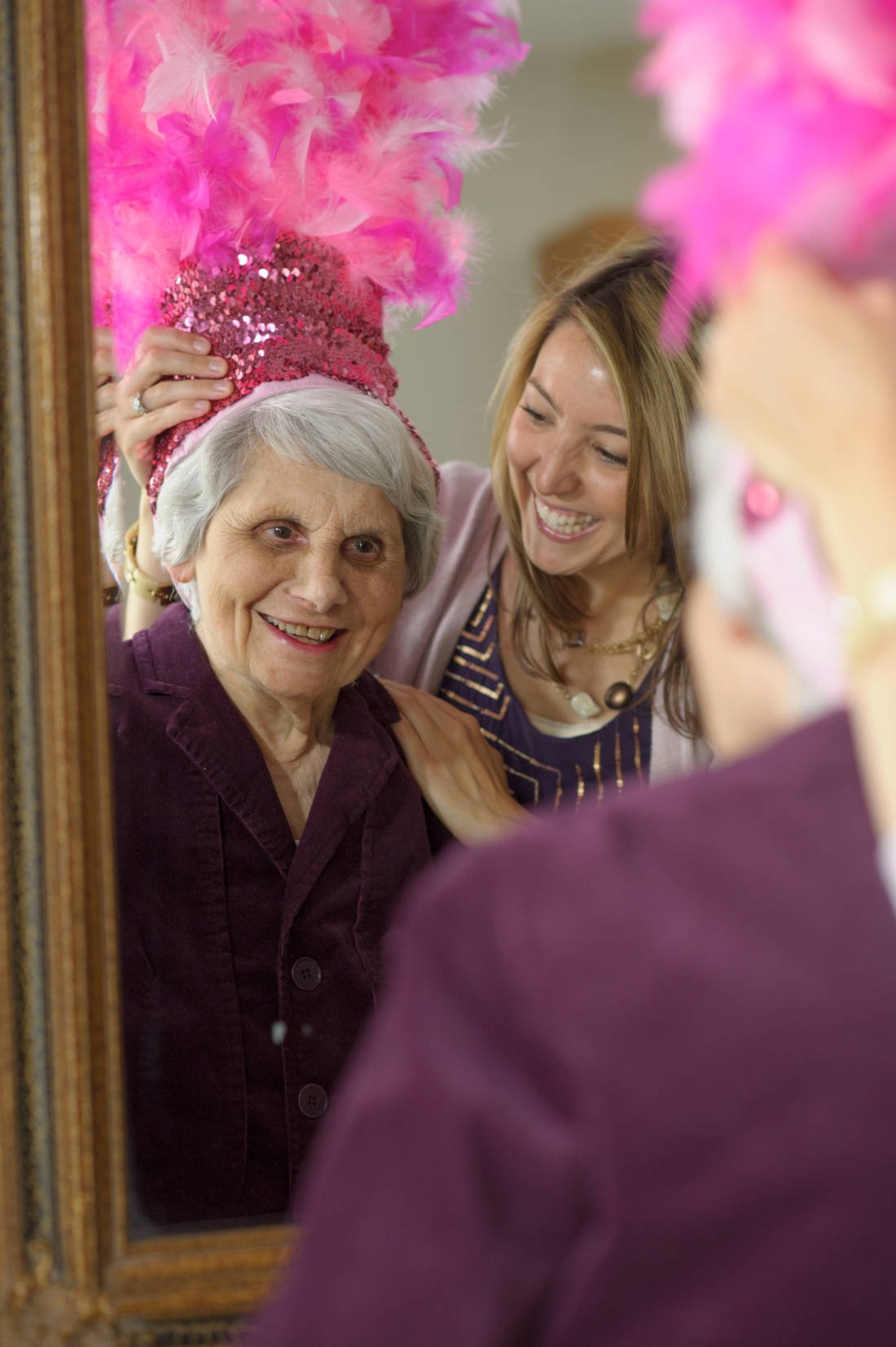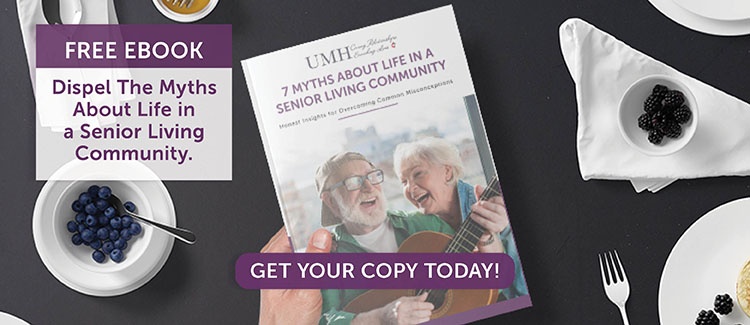Insights Into Fall Prevention for Seniors with Alzheimer’s or Dementia
assisted living | senior nutrition | senior nutrition ct | senior living nutrition | health tips for seniors | Aging & Caregiving
About one in every four seniors falls at least once a year, and the occurrence is even more common among those with memory and cognitive decline. With Alzheimer’s, for example, impairments in vision, perception, and balance increase as the disease progresses, making the risk of a fall that much more probable.
Given that slips and falls are a leading cause of broken hips and other serious injuries in the elderly, it’s crucial for seniors with Alzheimer’s—and their caregivers—to implement effective measures for fall prevention. With the fall season fully underway, there’s no better time to focus on preventing falls of vulnerable seniors.
The Facts About Senior Falls
According to the Centers for Disease Control and Prevention, millions of people aged 65 and older fall each year. Here are some additional eye-opening facts that highlight the realities of senior falls:
- One out of five falls causes a serious injury such as broken bones or a head injury.
- Each year, 3 million older people are treated in emergency departments for fall injuries.
- Over 800,000 patients a year are hospitalized because of a fall injury, most often because of a head injury or hip fracture.
- Falling once doubles your chances of falling again.
- Each year at least 300,000 older people are hospitalized for hip fractures, and more than 95% of them are caused by falling (usually sideways).
- Falls are the most common cause of traumatic brain injuries.
Greater Fall Risks for Seniors with Alzheimer’s or Dementia
While there’s plenty to be concerned about when it comes to fall risks for seniors, there’s, even more, to consider for those who suffer from Alzheimer’s disease or dementia. Understanding these nuances is key to prioritizing fall prevention and mitigating serious injuries.
For starters, there's an increased likelihood of vision and/or perception problems developing in seniors living with Alzheimer’s, making it particularly difficult for them to maintain balance. Especially when a room contains busy patterns, similarly colored floors, and furniture, or difficult spaces to navigate, there’s a heightened risk for vision and perception challenges to lead to falling. It’s important to keep this in mind when considering the living environment of a senior diagnosed with this disease.
In addition, problems with memory decline can cause a senior to forget where they placed something or where objects in their home are located. A byproduct of this issue could be tripping over obstacles they didn’t realize were there.
What’s more, there are certain medications taken by seniors facing an Alzheimer’s or dementia diagnosis, and whether they’re consumed alone or in combination with medications for other physical and mental health challenges, there could be side effects that exacerbate fall risks. If dizziness or lightheadedness occurs when standing, for example, this is a catalyst for dangerous falls. If a medication suppresses appetite for a senior (or they simply “forget” to eat at regular intervals) and they fail to maintain proper nutrition, they could lose physical strength and experience a fall from body weakness.
All of these factors make fall prevention a vital concern for seniors living with Alzheimer’s or dementia. To help these seniors and their caregivers minimize such risks, there are key preventative actions to keep in mind.
Fall Prevention Tips & Recommendations
Following are some helpful insights and recommendations gleaned from the CDC’s National Center for Injury Prevention and Control as well as WebMD medical experts, which can inform and support your fall prevention efforts.
- Talk openly with a doctor about fall risks and prevention. Tell them right away if you have fallen, you are afraid you might fall or you feel unsteady.
- Review all of your medicines with a doctor or pharmacist and discuss any side effects like dizziness or sleepiness. Understand that even over-the-counter medicines and herbal supplements can increase one’s fall risk.
- Ask a healthcare provider about taking vitamin D supplements to improve bone, muscle, and nerve health.
- Have a doctor check to see if blood pressure drops when standing up.
- Have eyes checked annually and update prescription glasses as needed. Conditions like cataracts and glaucoma limit vision.
- Have feet checked. Discuss proper footwear with a doctor and ask whether seeing a foot specialist (podiatrist) is advised.
- Stay active with exercises that make legs stronger and improve balance (like Tai Chi). Refer to one’s doctor about exercise programs for people with Alzheimer’s disease.
- Make home safer by eliminating trip hazards and keeping floors clutter-free.
- Add grab bars in the bathroom, and have handrails and lights installed on all staircases. A shower chair is also a good idea.
- Remove rugs, or use double-sided tape or a non-slip backing so the rugs won’t slip.
- Put in nightlights, particularly ones that go on by themselves after dark.
- Avoid dehydration by consuming 6-8 glasses of water or low-calorie drinks each day—unless directed by a doctor to limit fluid intake.
Memory Care for Vital Support
The truth is many seniors facing Alzheimer’s disease or dementia have specialized needs that can’t always be met when living at home, even if they have the benefit of a loved one’s time and care. Memory care communities are designed specifically with those seniors’ needs in mind and can be an ideal opportunity for supporting your loved one with the care they require.
As you think about critical elements like fall prevention among the daily challenges of living with Alzheimer’s or dementia, be sure to look into options for a community geared specifically toward meeting these needs. Consider scheduling a tour and finding out how a community like this can enhance life for a senior requiring such specialized memory care.
To learn more about UMH communities and the memory support services provided for residents and their families, visit our memory care page, contact us today or schedule a complimentary visit now. For additional tips on senior health and lifestyle issues, check out our blog.
About Marissa Salvesen
My journey into the world of senior living began when I started working for United Methodist Homes in 2010. Starting as an Activities Director at one of our award-winning assisted and independent living communities and then transitioning to Marketing and Promotions Manager for UMH, I now work as the Manager of Mission Development, fostering the Mission and Values of our organization. I love sharing stories about the many ways we build meaningful relationships and enrich the lives of those we serve, and am proud to be part of building UMH’s 140-year legacy of caring. Wondering what makes our communities such special places to live and work? Connect with me and find out!

Our Blog is a 2016 Platinum Generations Award Winner! The Generations Award is an annual international competition for excellence in senior marketing recognizing professionals who have communicated to the 50+ Mature Markets.




